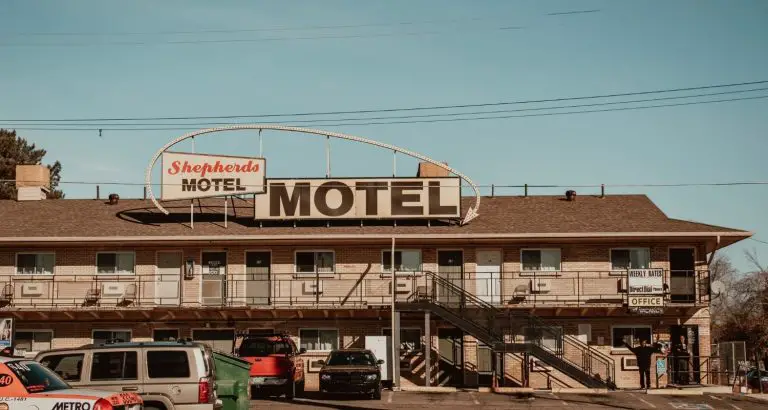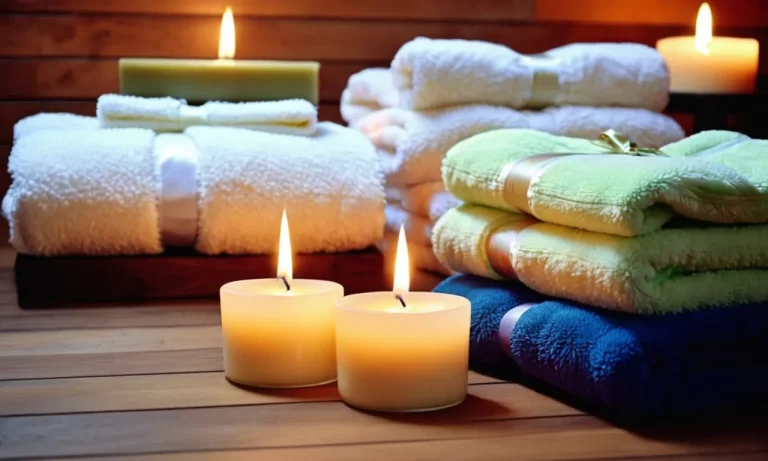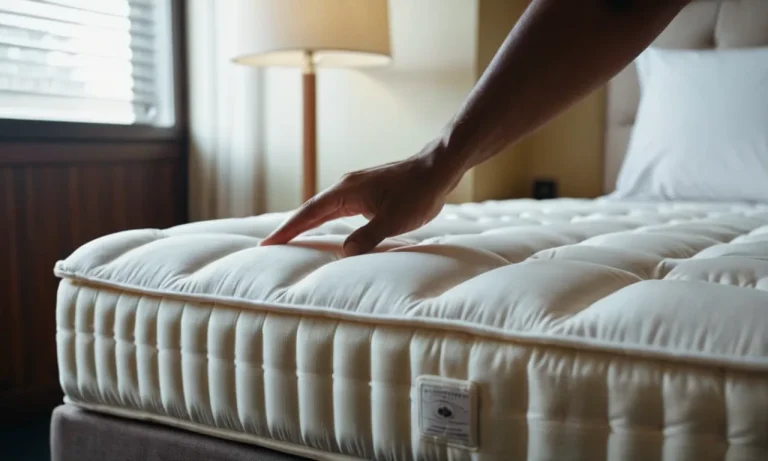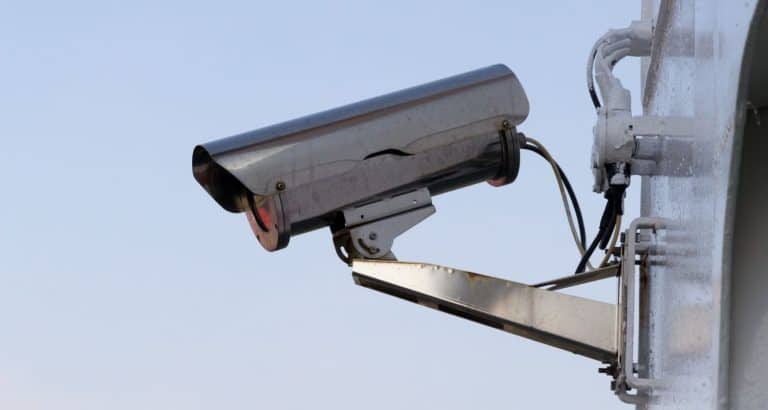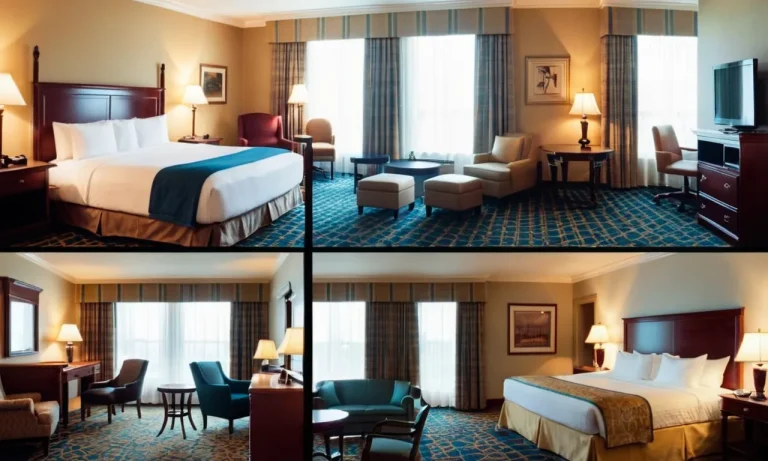How Much Does It Cost To Open A Hotel? A Comprehensive Guide
Embarking on the journey of opening a hotel can be an exhilarating yet daunting endeavor. The hospitality industry is a lucrative and ever-growing sector, but it also demands a significant investment of time, resources, and capital.
If you’re short on time, here’s a quick answer to your question: The cost of opening a hotel can range from a few hundred thousand dollars for a small, budget-friendly establishment to tens of millions of dollars for a luxury, high-end resort.
The exact cost depends on various factors such as location, size, amenities, and brand affiliation.
In this comprehensive guide, we’ll delve into the intricate details of hotel startup costs, covering everything from property acquisition and construction to staffing, marketing, and ongoing operational expenses.
Whether you’re a seasoned hotelier or an aspiring entrepreneur, this article will provide you with invaluable insights to help you navigate the financial landscape of opening a hotel successfully.
Property Acquisition and Construction Costs
When it comes to opening a hotel, one of the most significant expenses is property acquisition and construction costs. This category encompasses a wide range of factors that can greatly impact the overall budget, so it’s crucial to have a thorough understanding of each component.
Land and Building Costs
The first and most substantial expense is the cost of acquiring the land and building for your hotel. This can vary significantly depending on the location, size, and condition of the property. In prime locations or major cities, land and building costs can be astronomical, often reaching into the millions or even billions of dollars.
For example, according to HotelManagement.net, the average cost of acquiring a hotel property in the United States in 2022 was around $200,000 per room.
Construction and Renovation Expenses
If you’re building a new hotel from the ground up or undertaking major renovations, construction and renovation costs can be substantial. These expenses encompass everything from architectural design and engineering fees to materials, labor, and equipment.
According to HotelManagement.net, the average cost of a hotel renovation in 2022 was around $30,000 per room, with luxury renovations costing upwards of $100,000 per room. 😮 Construction costs can vary widely based on the size, complexity, and amenities of the project, as well as the location and local labor rates.
Zoning and Permitting Fees
Before you can even begin construction or renovation, you’ll need to navigate the complex world of zoning and permitting. These fees can add up quickly, especially in areas with strict regulations or high demand.
Depending on the location and scope of your project, you may need to obtain permits for construction, environmental impact, fire safety, and more. According to Investopedia, zoning and permitting fees can range from a few thousand dollars for a small project to hundreds of thousands for a large hotel development.
Ultimately, the cost of property acquisition and construction is a significant investment, but it’s an essential step in bringing your hotel vision to life. By carefully budgeting and planning for these expenses, you can ensure a smooth and successful opening.
Don’t forget to consult with experts in the field, such as real estate professionals, architects, and contractors, to get the most accurate estimates and guidance for your specific project. 👍
Furniture, Fixtures, and Equipment (FF&E)
One of the most significant expenses when opening a hotel is furnishing the guest rooms and common areas with stylish and functional furniture, fixtures, and equipment (FF&E). This category encompasses everything from beds, desks, and chairs in the guest rooms to lobby seating, restaurant tables, and kitchen appliances.
Ensuring your hotel is well-appointed and equipped to meet the expectations of modern travelers is crucial for attracting and retaining guests.
Guest Room Furnishings
Guest rooms are the heart of any hotel, and their furnishings play a vital role in creating a comfortable and inviting atmosphere for visitors. According to a study by HospitalityNet, the average cost of furnishing a mid-range hotel room can range from $10,000 to $15,000 per room.
This includes items such as:
- Beds, mattresses, and bedding
- Dressers, nightstands, and desks
- Chairs, lamps, and artwork
- Televisions and entertainment systems
- Bathroom fixtures and accessories
For a 100-room hotel, the total cost of guest room furnishings could range from $1 million to $1.5 million. It’s essential to strike a balance between quality and cost-effectiveness when selecting these items, as they contribute significantly to the overall guest experience.
Public Area Furnishings
In addition to guest rooms, hotels must furnish various public areas, such as lobbies, restaurants, bars, meeting rooms, and fitness centers. These spaces serve as the face of your hotel and can greatly influence a guest’s first impression.
According to Hotel Management, the cost of furnishing public areas can range from $500,000 to $1 million or more, depending on the size and level of luxury of the hotel.
Some common public area furnishings include:
- Lobby seating, desks, and artwork
- Restaurant tables, chairs, and bar stools
- Meeting room tables, chairs, and audiovisual equipment
- Fitness center exercise machines and weights
Investing in high-quality and visually appealing public area furnishings can create a welcoming and memorable atmosphere for guests, potentially leading to increased customer satisfaction and repeat business.
Kitchen and Laundry Equipment
If your hotel plans to offer food and beverage services or have an on-site laundry facility, you’ll need to budget for kitchen and laundry equipment. These expenses can quickly add up, but they are essential for providing a seamless and efficient operation.
Kitchen equipment costs can vary widely depending on the size and scope of your food and beverage operations. According to RestaurantOwner.com, a basic kitchen setup for a small restaurant can cost anywhere from $115,000 to $675,000 or more. This includes items such as:
- Cooking equipment (ovens, grills, fryers)
- Refrigeration units and walk-in coolers
- Prep stations and dishwashing equipment
- Smallwares (pots, pans, utensils)
For laundry facilities, you’ll need to budget for commercial-grade washers, dryers, and related equipment. According to LaundryLux, the cost of equipping a hotel laundry room can range from $50,000 to $500,000 or more, depending on the size of the facility and the volume of laundry it will handle.
By carefully considering your FF&E needs and budgeting accordingly, you can ensure that your hotel is properly equipped to provide an exceptional guest experience from check-in to check-out.
Operating Supplies and Inventory
When opening a hotel, it’s essential to factor in the cost of operating supplies and inventory. These expenses can quickly add up, but they’re crucial for providing a comfortable and enjoyable experience for your guests. Let’s dive into the key areas you’ll need to budget for.
Linens and Amenities
Linens and amenities are the backbone of any hotel’s operations. You’ll need to stock up on high-quality sheets, towels, robes, and other bedding items for each room. According to a hospitality industry report, the average cost of linens and amenities for a mid-range hotel can range from $500 to $1,000 per room.
Don’t forget to budget for regular replacements and laundry expenses too!
Amenities like toiletries, hair dryers, irons, and coffee makers also contribute to the overall guest experience. A study by Hotel Management found that amenities can cost anywhere from $50 to $200 per room, depending on the quality and brand.
😍 Offering premium amenities can be a great way to set your hotel apart from the competition.
Food and Beverage Inventory
If your hotel plans to offer dining options, you’ll need to allocate a significant portion of your budget to food and beverage inventory. This includes everything from ingredients for your restaurant or room service menu to minibar snacks and beverages.
🍽️ According to industry data, the cost of goods sold (COGS) for restaurants typically ranges from 25% to 35% of total food and beverage sales.
Don’t forget to factor in the cost of kitchen equipment, utensils, and other supplies needed to prepare and serve your culinary offerings. And if you plan to offer a continental breakfast or happy hour, be sure to budget for those items as well. 👏
Office Supplies and Technology
While often overlooked, office supplies and technology are essential for the smooth operation of your hotel. You’ll need to stock up on items like pens, paper, printer ink, and other basic office supplies.
Additionally, consider investing in robust software solutions for property management, point-of-sale systems, and guest communication.
According to industry experts, the cost of technology for a mid-sized hotel can range from $50,000 to $150,000, depending on the size and complexity of the system. Don’t forget to budget for ongoing maintenance, upgrades, and staff training as well. 💻
By carefully considering these operating supplies and inventory costs, you’ll be better prepared to open your hotel and provide a memorable experience for your guests. Remember, investing in quality products and systems can pay off in the long run by enhancing guest satisfaction and streamlining operations.
🎉
Staffing and Training Costs
Staffing is a critical component of running a successful hotel, and the costs associated with it can be substantial. From recruiting and hiring the right talent to providing ongoing training and competitive compensation packages, staffing expenses can quickly add up.
Let’s dive into the key areas of staffing and training costs you’ll need to consider when opening a hotel.
Recruitment and Hiring
Attracting top-notch employees is crucial for delivering exceptional guest experiences. The recruitment process often involves advertising job openings, conducting interviews, and background checks. According to Indeed, the average cost of hiring a new employee can range from $3,000 to $5,000, depending on the position and industry.
This cost can be even higher for specialized roles like executive chefs or general managers.
Employee Training and Development
Providing comprehensive training programs is essential to ensure your staff is equipped with the necessary skills and knowledge to excel in their roles. From onboarding and orientation to ongoing professional development, training costs can vary widely based on the size and scope of your hotel.
According to SHRM’s Human Capital Benchmarking Report, organizations spend an average of $1,111 per employee on training and development annually. 😀 Investing in your employees’ growth not only enhances guest satisfaction but also improves employee retention and productivity.
Payroll and Benefits
Payroll and benefits are often the largest staffing expenses for hotels. According to the American Hotel & Lodging Association’s 2022 Lodging Survey, the average hotel employee compensation (including wages and benefits) was $29,397 in 2021.
However, these costs can vary significantly based on factors such as:
- Location and cost of living
- Hotel size and service level
- Positions and experience levels
- Benefits offered (health insurance, retirement plans, paid time off, etc.)
It’s important to budget for these expenses carefully and offer competitive compensation packages to attract and retain top talent. Don’t forget to factor in potential overtime costs during peak seasons or special events.
By investing in your staff, you’ll create a positive work environment that translates into exceptional guest experiences – a key ingredient for success in the hospitality industry. 👏
Conclusion
Opening a hotel is a significant undertaking that requires careful planning, strategic execution, and a substantial financial investment. From property acquisition and construction to staffing and operational expenses, the costs can quickly add up, making it crucial to have a comprehensive understanding of the financial landscape.
By breaking down the various cost components, such as property acquisition, construction, furniture and equipment, operating supplies, and staffing, this guide has provided you with a comprehensive overview of the expenses involved in opening a hotel.
Remember, the exact costs will vary depending on factors like location, size, amenities, and brand affiliation.
Ultimately, the key to success lies in conducting thorough market research, developing a solid business plan, and securing adequate financing. With meticulous planning and a commitment to delivering exceptional guest experiences, your hotel venture can thrive in the competitive hospitality industry.


